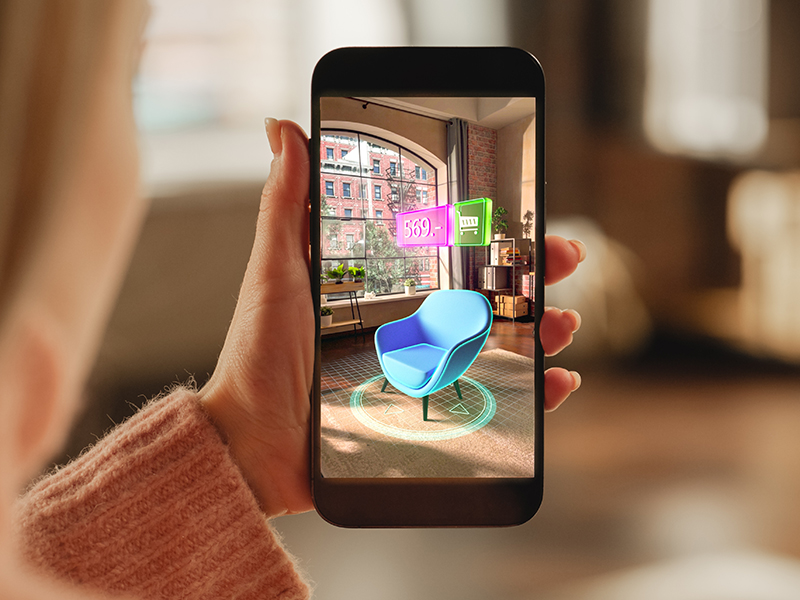Augmented Reality in Retail: How AR is Changing the Way Customers Shop for Furniture, Makeup, and More
Augmented reality (AR) technology has been revolutionizing the way we shop online, allowing customers to preview products in their own homes before making a purchase. This technology has been particularly beneficial in the furniture industry, where customers can now visualize how a new couch or table would look in their living room before hitting the buy button.
In a recent study conducted by Srinivas K. Reddy, a visiting professor of marketing at Kellogg, along with his collaborators Sandeep R. Chandukala and Yong-Chin Tan, the impact of AR technology on customer behavior was examined using data from an international cosmetics retailer. The results were promising, showing that AR usage on the retailer’s mobile app led to increased sales, especially for less-popular brands, expensive products, and items with narrower appeal. The study also found that AR was most effective with new customers to the app or product category, showcasing the potential of this technology to engage and attract a wider customer base.
AR technology in retail settings has been used for various purposes, including entertainment, education, product evaluation, and enhancing the post-purchase experience. Companies like IKEA and LEGO have successfully integrated AR into their apps to provide customers with a preview of how furniture or toys would look in their homes, leading to a more informed purchasing decision.
The study also revealed that customers who used AR spent more time browsing and ultimately purchased more products compared to those who did not use the technology. This increased engagement was particularly beneficial for less-established brands and unique products, as AR allowed customers to visualize how these items would fit into their lives, reducing uncertainty and encouraging them to make a purchase.
While AR technology comes with a cost, ranging from $10,000 to $300,000 for customized applications, the potential benefits for retailers are significant. By leveraging AR to provide customers with a more immersive and personalized shopping experience, retailers can not only increase sales but also build brand loyalty and attract new customers.
As AR continues to evolve and integrate into various retail experiences, the future looks promising for both customers and businesses looking to enhance the online shopping experience. With the ability to try before you buy and visualize products in real-world settings, AR technology is reshaping the way we shop and interact with brands, paving the way for a more engaging and interactive retail landscape.
